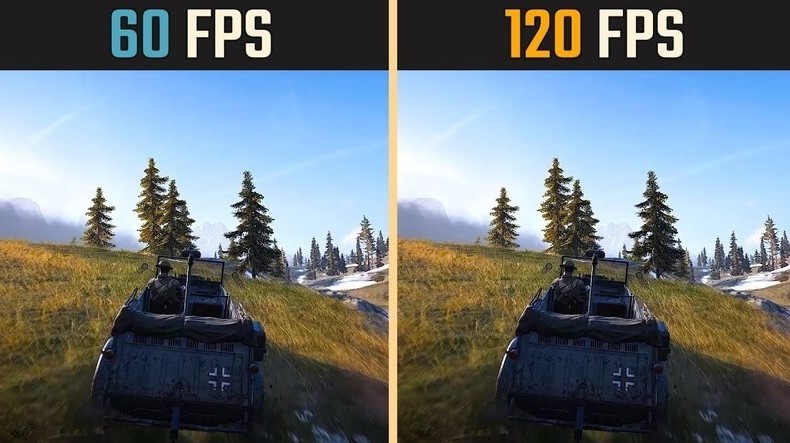In the world of gaming, where virtual realms and action-packed adventures await, jargon and acronyms abound. One such acronym that often leaves newcomers scratching their heads is “FPS.” But fear not, for in this article, medCPU will unravel the mystery behind FPS in gaming, exploring what it means, its significance, and how it impacts your gaming experience.
What Is FPS?
FPS stands for “Frames Per Second” in gaming. It is a measurement used to describe the performance and smoothness of a video game or computer graphics. FPS represents the number of individual frames or images that are displayed on the screen each second during gameplay.
In gaming, a higher FPS is generally considered better because it results in smoother and more fluid animations. Games with low FPS may appear choppy or stutter, making them less enjoyable to play. The ideal FPS can vary depending on personal preferences, but many gamers aim for at least 60 FPS for a smooth gaming experience, while competitive gamers often strive for even higher frame rates to gain a competitive advantage and reduce input lag.
To achieve higher FPS, gamers often invest in more powerful hardware, such as graphics cards and CPUs, and adjust in-game settings to balance graphical quality with performance. Additionally, some monitors offer higher refresh rates (e.g., 144Hz or 240Hz) to take full advantage of the increased frame rates, resulting in even smoother gameplay.

What Does FPS Mean In Gaming
FPS in gaming has two meanings:
- First-person shooter: A genre of video games in which the player experiences the action through the eyes of their character. FPS games are often characterized by fast-paced action and gunplay. Popular examples of FPS games include Call of Duty, Counter-Strike: Global Offensive, and Halo.
- Frames per second: A measure of how smoothly a video or video game is displayed. FPS is calculated by counting how many individual frames are displayed on the screen in one second. A higher FPS results in a smoother and more responsive gaming experience.
When people talk about FPS in gaming, they are usually referring to frames per second. A good FPS for gaming depends on the type of game and the player’s personal preferences. For most games, a frame rate of 30 FPS is considered playable, but a frame rate of 60 FPS or higher will provide a more fluid and enjoyable gaming experience.
Some gamers may even prefer to play at frame rates above 60 FPS, such as 120 FPS or 240 FPS. This can be advantageous in competitive games where even the smallest advantage can make a difference. However, playing at high frame rates requires a powerful computer and a high refresh rate monitor.
Here are some tips for improving your FPS in games:
- Lower the graphics settings.
- Close any unnecessary programs running in the background.
- Update your graphics card drivers.
- Make sure your computer is properly cooled.
- Overclock your CPU and/or GPU (if you are comfortable doing so).
If you are still having trouble achieving a good FPS, you may need to upgrade your computer hardware.
>>> Read also: Why are Gaming Laptops so Expensive
Factors Affecting FPS
Hardware
Your gaming rig’s hardware plays a pivotal role in determining the FPS you can achieve. A powerful graphics card (GPU) and a fast central processing unit (CPU) are essential for running modern games at higher frame rates. Upgrading your hardware can lead to substantial FPS improvements.
>>> Read more: Best CPU For RTX 3070 In 2023
Game Settings
In-game settings are another critical factor. Games often allow you to customize graphics settings, such as resolution, texture quality, and effects. Lowering these settings can increase your FPS, but it may result in reduced visual fidelity.

Software Optimizations
Keeping your graphics drivers and game software up-to-date is essential for optimal FPS. Developers frequently release updates and optimizations to improve game performance, so make sure to install these updates regularly.
Conclusion
In conclusion, FPS, or “Frames Per Second,” is a fundamental metric in gaming that directly impacts your gaming experience. It determines the smoothness of gameplay, provides a competitive advantage, and influences the visual quality of the game. To achieve higher FPS, consider upgrading your hardware, adjusting in-game settings, and keeping your software up-to-date.

Eyal Ephrat serves as the co-founder and CEO of medCPU.com, where technology is making significant strides in the field of medicine. Through his experience in purchasing PC and laptop equipment and various other tech products, Eyal Ephrat contributes valuable insights to medCPU’s mission.
